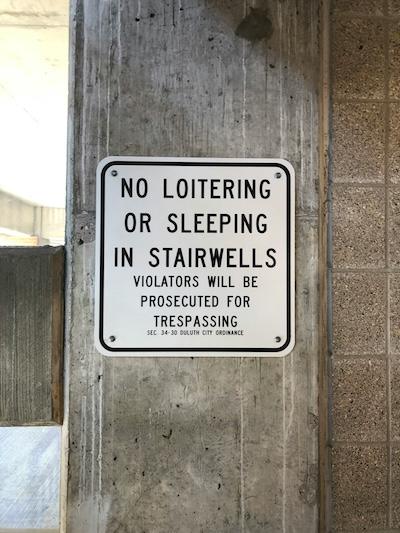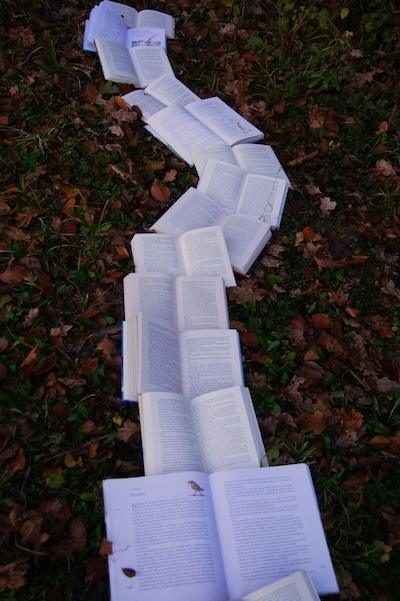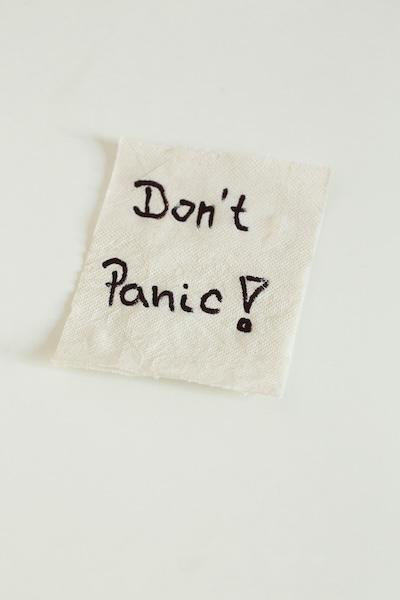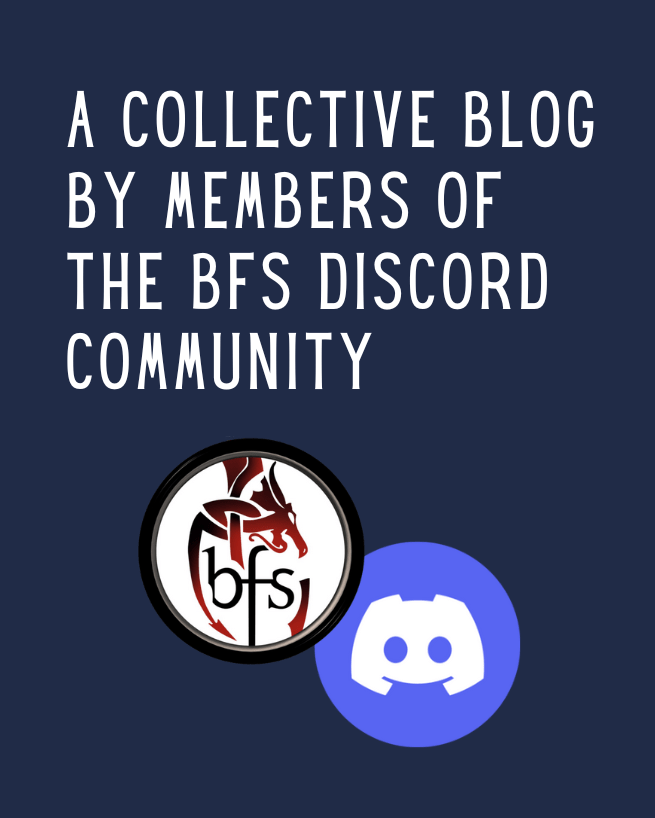It’s the bit of creative work we all dread: the judgement, the waiting, the rejections, the lows and, sometimes, maybe, the highs of the submission process. I’d noticed a lot of questions in our monthly Ask an Expert column about what’s ‘normal’ when on submission or querying your creative work, so thought we could leverage the community experience for this one.
And boy, did it really get the conversation flowing—so much so, I can’t even represent it all on this page! We definitely hit a nerve here, and may well introduce a new peer advice channel in Discord to keep this discussion going.
For April, I asked the community the following, stressing it was not just for the written word since anyone who creates (artists, filmmakers, audio producers, etc) will all be on submission at some point:
- Those with experience submitting to publishers/editor or querying agents: What was your experience? How long did it take you? Did you hear back at all, and what sort of feedback did you get? What were your biggest frustrations – and biggest learnings?
- Those who are new to the world of submitting: What are your worries? Frustrations? What are you learning?
- Those are the ones that receive submissions(agents/editors/publishers/competition runners): What are your biggest bugbears? What do you wish submitters knew or did better? What gets you on the right (and wrong) side when you open a submission?
Below is a selection of the chatter from our members-only Discord. Give your own thoughts by leaving a comment at the end of this article, or jump back into Discord to get involved. Are you a member but not yet in the BFS Discord server? Contact us to request your invite.
-Lauren McMenemy, BFS Marketing

Comments are presented as they were in Discord/Facebook, including back-and-forths between multiple members. Where an individual contributor came back with more thoughts separately, those comments have been summarised as one.
Worries from those submitting
As someone submitting a fairly racy book, my biggest bugbear is agents/publishers who don’t specify what spice level they’ll accept. I’m putting out (snerk) without knowing if it’s hitting the right people.
-Helen Rose Thwaite
I’m worried because all the advice about submissions seems strongly based around “put it in a box with as many labels as possibleâ€, but no advice on how to know which box it fits in nor what labels work (and the whole premise of boxes and labels is a little uncomfortable for me anyway, since I rarely feel like I fit in the boxes I apparently belong in).
-Luna Profir

I have to say that, while very interesting, the overwhelming sentiment seems to be that querying is a horrible process that almost never succeeds and that neither authors nor agents seem to enjoy or get very much positive out of…
-John Berkeley
(Photo by Brad Neathery on Unsplash)
Querying and submissions. Horrible processes. I hate them both. But I don’t know how else we would do it!
-Laura Bennett
Idk. I’d very much like to be able to convey succinctly to potential agents that “I have multiple books in me across multiple settings and would like to forge a long standing professional relationship to mutual benefit with fun works that I think are of good quality, and no I’m not an axe murderer,” in a way that doesn’t make them all immediately run screaming for the hills. Doing it book by book seems… counterproductive. Particularly as those books differ in content, tone, setting, and SF or F ness, if you see what I mean.
-John Berkeley
Well, when you send a query you can include a bit about your other books – but I totally get what you mean.
-Laura Bennett
Tips from those who’s been there, done that
Magazine submissions are mostly positive experiences for me. Other than the length of time it takes to get a response (which I circumnavigate by checking Submission Grinder for response times and avoid submitting to the really long ones). Most will respond with at least a form email if they’re going to reject, and some even give feedback.
Agents, I get really disillusioned. In my most recent round out of 8 queries only 2 responded at all. One was a form email. The other offered some useful feedback. I know they are really busy and deal with so many queries that they can’t respond to everyone, but it doesn’t make it feel any easier knowing that. I still get anxious about whether they even received it in the first place or whether they thought it was so awful they just binned it (I know it’s not, I know, but tell my imposter syndrome that).
Publishers, I’ve had varying levels of response, once or twice with feedback but there’s always been a response. So far.
As for tips, my only suggestion is read their submission guidelines and give them what they ask for, as it varies. Some have started asking for a synopsis for short stories, which makes my eyes roll because it’s a short story but if you don’t submit exactly what they ask for as far as formatting and information they will often reject without reading. And read some of what they publish to get a feel for what they like (especially in short fiction).
-Cheryl Sonnier
I’ve queried for two books so far. In both rounds I queried almost 100 agents. I used querytracker.net on the second round and this really streamlined the process for me, keeping track of agents and (with the paid version) being able to see where I sat in an agent’s slush pile.
There will be a long wait for responses. Some agents do reply super quickly (quickest I had was about 6 hours!!) but generally you’re looking at around 2-3 months minimum. Some agents won’t reply at all. Try to get used to waiting. It’s hard at first but you do eventually stop refreshing your email inbox every 5 minutes.
You will rarely get feedback from agents. They just don’t have time to provide it to the hundreds of authors querying them. It’s not personal, it’s how the querying process goes! From the many, many query letters I’ve sent out, I’ve received a small handful of brief feedback (mostly from agents who had requested a full).
Check agent guidelines closely to ensure you provide everything they’re looking for. Agents tend to have personal preferences for what they want you to send.
(Photo by Craig Bertram on Unsplash)

You can query small presses (many are open to unagented authors) at the same time as agents if you want to, though do check guidelines for the small presses as some do request exclusive submissions (meaning you can’t submit elsewhere whilst your book is with them).
Basically: be prepared to wait for replies. It’s not a quick process. I found it helpful to have writer friends to speak to about the stress and anxiety of waiting, and, of course, of the inevitable rejections. The rejections will get easier, you will build resilience, but they do suck and it’s okay to be sad about them.
-Lucy A McLaren
I’ve just started querying a novel (queer YA dystopian fantasy) for the first time ever. I’m going slow and personalizing each query with typically one sentence that shows I’ve checked out the agent’s website and interests. I’m being methodical: my plan is to send out about fifteen queries over four or five months, then look at the pattern of replies. If there are no partial/full requests or personalized rejections, that tells me the query may need some work. So far I’ve sent 6 queries. I’ve had 5 rejections (one personalized), with one still out. Some got back to me within a week, others within one to six weeks.
I’ve booked an agent one-to-one for Cymera 2025.
One of the big issues I’ve noticed is the difficulty in knowing “is the query/novel good enough” or is it “market says no”? Objectively, I’ve had a lot of feedback from betas and dev editors and have absorbed and worked on a lot of fiction craft techniques, but the dynamic of the process (lots of rejections = inevitable) invites you to start second-guessing yourself (yes, even if you’re a trained editor and know how to improve other people’s queries or stories). And so I think resilience, persistence, and having writerly community is soooo important.
As I know the process could be long, I plan to workshop the opening chapters again as I go and then leave it and focus on writing something else.
-Andy Hodges
This is a great point. Some people say the novel is good enough when beta readers finish it with ease, have stunning praise and any criticisms contradict those of another reader. But this would only happen if the beta readers are also the target audience of such a book. There are a lot of factors in the experience!
-G Woods
Who likes your book is so subjective, and that applies to agents as well as readers. Getting a no from one (or many) agents doesn’t mean your book isn’t good enough. That being said, if you’re consistently getting rejections with no partial or full requests, it might be time to step back from querying and review your letter/synopsis/first pages to see if anything could be holding you back.
-Lucy A McLaren

I queried two novels. The first I queried around 100 agents, got around 25 requests but no offers. Most of the rejections that I received said it was too long (130k epic fantasy) which I railed against at the time, now understand better.
The second novel I started querying when I shelved the first. I sent around 45 queries all together, received a very fast first offer which allowed me to nudge all of those except two or three who had already rejected. From that plus a few other early requests, I had 30ish requests and 8 offers of rep. I think the main reasons I was so successful the second time were:
- Book length was much shorter (75k)
- I just happened to hit a trend cycle (for querying at least) at the right time
- It was an objectively better book than my first
- The early offer made people curious
Having that first offer changed everything. I don’t think my now agent would have even read my submission yet (nearly a year later) if it hadn’t been for the nudge and same for the others who offered. A lot of the agents who requested probably wouldn’t have done so either if they weren’t looking out for what other people were signing on.
I’m on submission to editors now and struggling with it although it’s objectively going well. We got some nice feedback 2.5 months ago but then silence since. A few very kind rejections that might have taken it to acquisitions but they had bought something too similar recently (see hitting the trend cycle querying, 3 months too late for submitting)
RE: submission questions, I think what’s most frustrating is that the process is such a black box! Editors of course don’t get to submissions in order, authors don’t know when and how decisions are made, timelines are all over the place. Sometimes it feels that if you don’t get picked up in month one it’s over, but then that’s also objectively not true. It’s just a really easy time to get tangled in your own head.
-Morgana
So, I’ve been querying my first novel for the last year, and it’s gone at least as well as you would expect for a first time novelist. It’s been an interesting experience.
I sent my first round of queries out, and less than 24 hours latter, one of the agents I queried shared an article on ‘Top five mistakes authors make when querying’ and I hit about three of them. That was a fun morning. So, I guess the first piece of advice is to read as much advice as you can (taking everything under advisement, of course).
It was after that that I bought a professional query package review, which was very helpful. I think that it’s important to show your package to at least some-one who knows a little bit about what you’re talking about.
After addressing the issues that brought up (or thinking I had), I plowed ahead, but I think I was rushing. With Hindsight, I wish I had waited a year to give myself the proper amount of time to think over and address the feedback I got from my query package review. The Opening three chapters of my Novel have changed substantially in the last few months and I think it’s much stronger now than it was.
But I’m not discouraged! I knew that querying was a bit of a shot in the dark, and I think that where we the publishing industry is at the moment means that an unsuccessful round of queries doesn’t have to be the be the end of the journey. I’m focusing now on how I can self publish within my means.
-Matthew Palmer
From a querying perspective, there’s so much information about the length of the query letter, how many comps, whether to personalise, whether to include a logline etc that you can go around in circles continually rewriting and tweaking it until you’ve come full circle! I think it’s best to try in batches, so if you don’t get any requests – you can adjust and retry with something slightly different in another batch, to see if you get a better response.
I also think that even though Query Tracker streamlines the process, there is a huge margin for error! With auto-saving query information, you’ve got to be careful you don’t accidentally include the name of the previous agent for example! So it might feel simple but double check everything before hitting send!
This leads me on to querying materials needed to submit. All agents ask for different things. It might be the first four pages or the first 10k but double check each agents’ website. You might need to have a 300 word synopsis or a one pager or even longer. Some agents even have particular requirements outlined in their individual profile page, rather than the agency’s submissions page, so do your research to get it right before you hit send!
Querying takes a long time, so mix up the batches of agents you query to include ones that have a quicker response times, as this might give you valuable and actionable feedback to help with future queries. Also, if this is your first try, don’t send to all your dream agents in the first batch, as if you haven’t quite got your letter & materials spot on – then you haven’t blown your chances in the first foray!

They don’t call it the Query Trenches for nothing, so definitely connect with other querying authors for tips & information – and also to commiserate with when you get those rejections! We are all in the same situation and the community is a huge support network.
-Mel Reynard
I’ve done one round of querying for my debut so far, which went to four agents 99 days ago. In that time I’ve had:
- One form rejection (at 16 days).
- Two that timed out based on a note on their website that said “after X weeks you can assume this is a no” (at 6 weeks and 3 months).
- One with no response or default timeout.
I find the endless waiting to be crippling. I also cannot ever tell how much advice that’s out there on the web is aimed at the US market and whether it actually differs in the UK (because it seems to me that everyone in the UK askes for 3 chapters / 50 pages / 10k words and a synopsis, whereas in the USA getting asked for a partial is a second step and there’s no synopsis, so how does this change what the pitch needs to cover?). Following the rules for comp titles is the worst though. I read a lot of things, but I don’t necessarily read current things all the time, so finding something that’s not too old and not too famous and still similar enough to be worse than actually writing the novel in the first place!
-Richard Hussey
Are you doing the “go for vibes, not perfect matches†method for comp titles?
-Laura Bennett
Yeah, where I can; but the things that feel best to me are both too old and too famous. So I do have comps, but one of them has aged out this year, but the other is fine.
-Richard Hussey
Personally I think four queries is too small a batch to send out initially – especially as waiting times might be long. I’ve been at it a year now, I had two partial requests after 194 days and 71 days respectively (that last one then went unanswered for a further 274 days!) So it’s a lot of waiting. I would suggest trying agents with quicker responses to see if you get any requests or feedback in the response. And also get some critique on your letter and first pages. Hugs though – it is tough! Lots of querying authors are sending 100s of queries at this time due to the waiting.
-Mel Reynard
Oh boy. I have literally got years older waiting for some open submissions to get back to me. And some are still out there.
-Steven Poore
Mind you, I’m not in a huge rush. So I don’t mind waiting as long as I know how long I have to wait. It’s the open-ended nature of the beast that’s the problem for me.
-Richard Hussey
I started querying for the first time in January (only sent 12 so far, so it’s very early days). I’m early enough in the process that the frustration at very slow response times and rejections hasn’t hit me yet. I think other than the obvious big step of putting your work out there, the hardest part is the transition from thinking of my book as my goofy little personal project to thinking of it as a product I want to sell one day and getting in that confident headspace to pitch it.

I’m confident my book is worth the agents’ time (i mean, if you don’t fully believe that, what’s the point in submitting?) and that if it reaches its target audience they’ll love it, but sometimes it’s impossible not to second guess things and wonder if it’s actually not good enough after all, or if it is in that awkward spot of ‘enjoyable but not hitting the right market trends to be worth the risk on’, in which case it might be more at home with a loyal niche following from self-pub than mass market. And of course, the worry that I might just get unlucky. The hard truth of it is that we can do everything right and still just never catch our lucky break.
These thoughts can be very intimidating. But for now, I’m early enough in the process that I still have plenty of agents to try and my hope hasn’t been crushed yet! Besides, If I’m not successful with this, my next book is already looking pretty good and should be query-ready by the time I run out of options with the first.
(Photo by Laura Kapfer on Unsplash)
I’m not really qualified to give any advice on the matter, but I suppose what’s made the query process possible for me is spending the time looking for resources and guidance online, and having communities like the BFS and my local writing group for support and advice. The querying itself is a slow and solitary process, but it makes a big difference to have friends and acquaintances on the same journey.
-Laurence J.R. Nix
I think we all go into this experience thinking ‘this is the book’ and you’ve got to feel that otherwise you won’t give it its best shot.
Querying is hugely competitive at the moment, and it’s completely changed over the last few years. I think agents know there are less publishing spots for debut authors due to what’s currently selling on the market, and there’s this strange Catch 22 between writing the book of your heart but also writing what appeals to a broad readership, so I think it’s hugely important to keep reminding yourself why you wrote the book in the first place and never to lose sight of that.
-Mel Reynard
Since I was a teenager what I would do is write a book, send it to about a dozen agents/publishers and mostly hear back from none of them, then I’d decide the novel wasn’t worth it, so I wrote another novel, and I’d repeat this process roughly once a year.
About 10 books and no requests later, I finally hired a professional editor and got some feedback on my work, then I wrote another couple more books and started submitting them, and eventually I got two requests for full manuscripts from agents, which they really liked and gushed over and eventually passed on.
By this point I felt like I’d submitted to everyone in the world (in SFF publishing, probably a couple dozen people) and I got fed up with waiting for responses so I started self-publishing. But every few years I still write another book and submit that a few places then forget it exists and go back to whatever else I was doing.
I think my tale is a good example of what not to do, because it’d make a lot more sense to perfect a submission instead of continually moving on to the next thing; I just get too easily distracted by wanting to write more books.
-Phil Williams
I’ve been querying on and off since the 1980s (I was a teenager then but got some very near misses; likewise in the 1990s and 2010s) and am gearing up to query for agents with a new political science fiction novel.
For the novels I’ve had published I saw open calls from smaller presses that matched what I either had or could adapt quickly. I’m also sending short fiction out to various markets – trying to keep a bunch out there until they land or I run out places to send them. I was about to retire one but it got two encouraging responses in quick succession so while it’s yet to find a home, I’m keeping it out there. Interestingly, I keep finding new markets that look promising.
I’ve learned a lot over the years, and while things have changed, there are a few basics to keep in mind that have already been mentioned: be polite/professional; follow the guidance of the specific agent/publisher/publication; remind yourself that subjectivity is real; and don’t give up (some caveats apply to that one).
-SJ Groenewegen
It’s been years since I last queried (we’re talking over five years) but I got a lot of interest from small presses and even signed with one that sadly closed during the pandemic. Getting that interest can feel like a boost after being rejected by numerous agents, but my advice there is to make sure you do your research if considering a small press. Find out more about them, their history, what authors they work with, what books they’ve published and whether these are quality books with quality covers and some successful sales. Especially watch out for vanity presses.
Many authors don’t mind if you reach out to them privately to ask what their experiences have been like with a small press, and I assume the same can be said with agencies.
-Trudie Skies
The Pubtips subreddit is really good for that, people have extensive lists of places to avoid and seem to happily share them.
-Laura Bennett
Writer Beware is also a good resource and generally the whisper network in the querying community is also helpful.
I myself recently came across a vanity press and thought they seemed legit! So always cross reference and double check. If you haven’t already heard of them and it seems to easy – then it’s probably fake! T
here’s a lot of people impersonating agents and published authors on the Hellscape that is Twitter/X at the moment as well. So you can’t be too careful.
-Mel Reynard
(Photo by Markus Spiske on Unsplash)

With queries so far what I’ve done is mention any short fiction I’ve had published, which if they look it up will give them a sense of my range and my style. (anything from contemporary horror to sci-fantasy, with queer characters/themes and usually a very dark viewpoint and narrative). It’s earned me a full request on third agent queried, so it’s not doing BADLY.
Basically it goes:
Dear agent-
Query!
Comps!
About me!
Thanks for your time and consideration
-Tiernan Blanchard
I have stepped into the query trenches but I honestly feel like I’m chucking pebbles at a mountain. I signed up to the paid version of Query Tracker and seeing the sheer volume of people querying the agents I have on my list makes it feel like an exercise in futility. (How do these agents have time to do anything with so many queries landing in their laps whilst already handling the clients they have?) My goal is to see this through while I work on my next project, because I will be annoyed at myself for not at least trying. I have found it very stressful when agencies leave their process for sending a query vague, when it varies so much from place to place. I’ve ignored some agencies entirely because I felt there was a barrier they expected me to overcome to get to them. As an ND individual, I just am not setup to decode such things when I’m already putting myself through stress by entering this process.
-Donna Morgan

My advice to anyone new to querying a book is that you need a model, a template, to guide you in this strange realm you are about to enter.
I’d recommend Alice In Wonderland as your model.
Because you are about to enter a world that is confusing, opaque, sometimes contradictory, sometimes seemingly senseless. Where being ignored and rejected is the norm. Where there are few rules written down and many rules that are hidden. Although none of these are actual rules.
It’s a world that feels built to make you fail. If you ask why the horribleness, you’ll be told, “Well, because it works.”
Which begs the questions, “For who?” and “What else have you tried that might be a bit better for everyone?”
(Photo by Z Graphica on Unsplash)
Oh, and stay away from social media when querying. It’ll do you no good. Don’t let querying be the centre of attention. Find something nice to do between bouts.
-Stephen Frame
Tips from the industry
Okay, a few bits from me-
- Don’t worry about personalisation too much. As long as it’s not just “dear agent†or absolutely the wrong name, it’ll probably be fine. Unless an agent has requested your work or you had a long chat with them or something equally memorable, don’t worry about it. You don’t need to put “I queried you because of your wishlist†or “because you represent XYZâ€, because we can tell that from your query. Save yourself the time.
- Don’t assume you’re an exception. If we get a “I know you said you don’t represent X, but my X is different†then you’re probably straight in the bin.
- Don’t insult us in the query letter. People do it. Please don’t.
- Have a snappy one-line pitch. When we’re getting hundreds of queries, it really helps to have a good one-line pitch with the genre and maybe some comps. Look at the way it’s done on Amazon for some ideas.
This blog on query letters might help some people too.
Something that might be worth saying is that there are so many reasons why a book might be rejected by an agent (when querying) or a publisher (when on submission.)
For an agent:
- Have something similar on their list already.
- One of their authors is writing something similar.
- Have tried to sell something similar and failed.
- Not looking for that particular sub-genre right now.
- Don’t know enough about that topic/genre to sell it.
- Don’t feel like they are the right ones to champion that book.
- Like it, but not enough to really sell it.
- Know it needs editing, but not sure how to do it right.

Publishers:
- Something similar already
- Something similar coming up
- No clear editorial vision
- Marketing said no
- Doesn’t fit with their list
There’s all of that, and none of it has anything to do with your idea, or your writing or your talent!
It’s also worth noting bearing in mind the sheer numbers – for example, I’m only going to take maybe one or two new authors this year. Out of hundreds. And some agents get literally thousands of queries.
-Laura Bennett, agent
It can be a long road out there, creatives. Don’t let the query trenches get you down!



